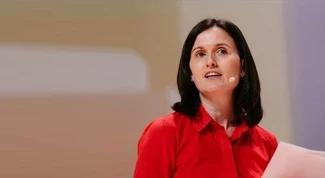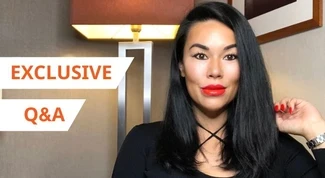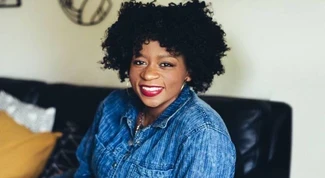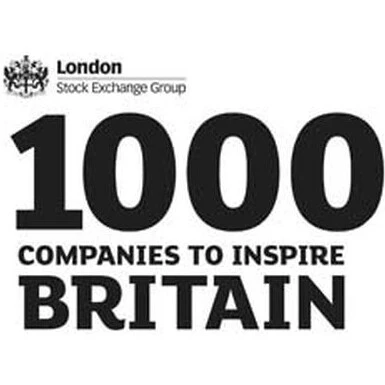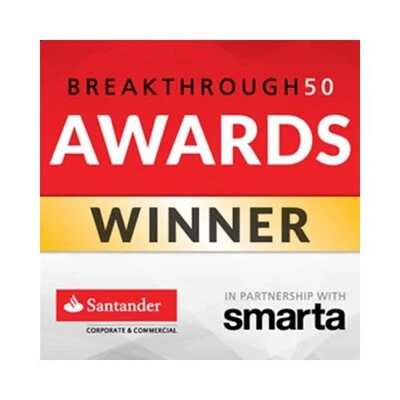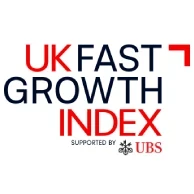In this Q&A, conducted by our Director Jack Hayes, Alice Charles discusses the complex world of smart cities and sustainable urbanisation. She is an authority on the subject and has led numerous city projects throughout the world as the Head of Cities and Urban Development.
In this interview, Alice Charles shares her insight into smart cities and modern technology, topics that she also explores as a sustainability speaker at events.
Q: What are the key traits of a ‘smart city’?
Jack: “Speaking as a smart city speaker, what distinguishing characteristics mark a ‘smart city.’ And which principles could we use to identify and use in other industries such as technology and innovation?”
Alice: “It’s not a new term, it’s been around for about 15 years, and it really came from technology companies rather than cities themselves.
“Technology companies developed widgets and gadgets they thought they could sell to cities to help them deliver better services for their citizens and create a more efficient city administration.
“What we’ve seen over that period was a plethora of pilot projects being rolled out in cities across the world, but around three-quarters of those failed to get to scale. What we do know is that the invention of ‘smart cities’ was not successful because those widgets and gadgets were not necessarily what the city wanted.
“Whilst problems may be similar in cities across the world, context matters. So, you need to understand the local context, the unique context of that particular city, the unique needs of its citizens, and the unique needs of the city administration to come up with technological solutions.
“In the last few years, we’ve seen the term ‘smart cities’ die away quite a lot. Instead, we have seen the technology industry shift, which I would argue is in the right direction – they need to focus on an outcome-based approach.
“Technology is not a silver bullet to fix a city’s problems. So if a city, for example, wants to be net zero carbon by 2050 – and we saw at COP26 many cities committing to that – technology solution providers must create technology to help them get there.
“I think what we need to see is both the city taking leadership and ownership, and see the technological sector focus on an outcome-based approach where they’re first asking the city, what do you need for your citizens and administration? And then tailoring the solutions to help with those needs.”
Q: How can cities become more sustainable?
Jack: “Sustainability is becoming increasingly important in all industries. What sustainable practises can cities adopt?”
Alice: “This is something cities are really looking at, particularly with COP26… First of all, cities want to be net zero carbon, and the reality is, if you are to be net zero carbon there are four really big things you’ve got to address.
“One, you’ve got to decarbonize your energy system, your energy grid, your energy sources. The second is you’ve got to decarbonize your mobility system, all modes of transport, and then you’ve got to create more efficient buildings.
“That means not just cutting your operational emissions in terms of energy use, but also your embodied emissions, which is associated with the building materials and the furnishings that you use in buildings.
“The fourth thing is you must be a compact city, so a sprawling city cannot be a net zero city, because of course, you’re going to have greater use of cars. If you look at somewhere like Stockholm versus Pittsburgh, two cities of similar size in terms of population. But in Pittsburgh, you’re using five times more land than Stockholm, and it has around five times more emissions than Stockholm.
“When I say compact, I do not mean building heights, because if you compare New York with Barcelona, believe it or not, they have similar density. But what you have in New York is one borough, Manhattan borough, and there’s four other boroughs with very high-rise buildings - then you have the rest of the city with very low-rise buildings.
“Whereas in Barcelona, what you have is consistent densities. That is much more economically viable in terms of delivering infrastructure and it’s also more resilient.
“Cities should also be nature positive. That means protecting your green and blue water infrastructure within your city – not just protecting it, enhancing it and developing it. It means, for example, embracing nature-based solutions to help you on your journey, like protecting and enhancing floodplains.
“It also means increasingly looking at how you can get additional biodiversity into development. If you’re developing real estate, can you have green roofs on every single building? For example, can you have green space, surroundings and blue space as well? Can you incorporate biophilia into your building, which is also good for health and wellness?
“To be a more sustainable city, it means embracing this agenda around net zero, particularly focusing on mobility, energy, buildings, and compactness. But it also means embracing nature-based solutions.”
Q: What is the biggest challenge in sustainable urbanization?
Jack: “Challenges present themselves in different forms. From injuries in sports, fraud in finance and business, and security breaches in technology. What is the principal obstacle to sustainable urbanisation?”
Alice: “When you have something like COP26, you see a lot of pledges, but no action is taken the very next day, and political leaders often leave it to their successor.
“I think that’s a difficulty that we need to try and overcome in cities around the world; we must hold these cities and governments to account year on year, so they take action.
“Another thing that I do have to highlight is finance, the availability of finance to actually pay for [sustainable urbanization]. If I was to talk to the financing community tomorrow, they would say, ‘We have a lack of bankable projects.’
“What they mean by that is there’s a lack of projects within cities with the risk profile and structure for them to invest in, so they’re not properly prepared. What we often see is that national and city governments lack the capacity and the technical expertise to prepare projects in such a way for an investor to actually want to invest in that project.
“That’s a big barrier in terms of the climate projects that cities around the world need to implement to help them get to net zero.
“Even the most frugal city is in deficit because they’ve seen their revenue plummet. But at the same time, they have had huge increases in costs related to health or sanitation, or even a reduction in returns and investments.
“Cities' budgets are severely impacted, and they have less of their own money to invest. National governments are in the same situation, they’ve had to borrow heavily, so the transfers that would normally take place between national government and city government are going to be constrained for a number of years.
“That means they have to increasingly open themselves up to alternative sources of finance, particularly from the private sector, institutional investors, multilateral development banks, development agencies, philanthropy, etc.
“And in that context, they are lacking the capacity and technical expertise to prepare these projects for those investors. So, that is probably the biggest problem of all the problems that they face in driving this transition.”
Q: What has been your proudest professional achievement?
Jack: “For adventurers, it's climbing Everest, For sports stars it’s medals… What is your proudest career accomplishment to date?”
Alice: “I had the absolute privilege at a relatively junior level in my career to work on the Olympic bid project in London, and I think it was wonderful to see us ultimately win that bid.
“What was really wonderful was that there were two master plans from the very beginning. There was amazing leadership from Ken Livingston, who was the former Mayor of London.
“One of the master plans focused on the Olympic bid, and the second was the legacy, which was the most important part of the plan. When you go to the East End of London, you see the legacy, so that’s really wonderful!
“More recently, there are tons of different achievements. But I think one of the things we did that I still am very proud of - at the forum we decided to produce a report looking at leading urban innovation. From that, we looked at one of the innovations used in the city of Melbourne, which was to adopt a tree through a social network. We took that, and we created a platform with MIT to look at the percentage of green canopy, and the individual number of trees in different cities around the world.
“That really started a competitive element to get cities to seriously think about biodiversity!”
Q: How are smart cities more accessible to a diverse population?
Jack: “Diversity and inclusion experts highlight the importance of a diverse workforce and populations. How are smart cities making themselves more accessible to a diverse population?”
Alice: “I think one of the things that Covid-19 has done is it’s managed to shine a light on some of the inequalities that already existed within our cities. It’s fair to say that many of those challenges were actually chronic challenges that existed before, but we’ve managed to see them to a much greater extent during Covid-19.
“So, in terms of thinking about how you create a city that is more inclusive and more accessible, you need to think, ‘who are the vulnerable groups within my city that potentially could be excluded?’.
“For example, that could be women, that could be people from the LGBTQ+ community, that could be disabled persons, that could be migrants.
“There are people who are basically priced out of the market in urban areas. They’re living very much on the periphery or have a long journey from the city, and they’re spending huge amounts of time commuting long distances. They may have young families, they’re not concentrating on their health, and they have high levels of stress. They don’t have access to employment opportunities.
“You also have digital exclusion. And we’ve really seen that from Covid-19, where, for example, education went online, and many children just didn’t have access to the software, or the hardware required for them to access education.”
Q: What role does sustainability play in urban development schemes?
Jack: “In urban development schemes, what part does sustainability play?”
Alice: “ESG has a major influence. So, if you’re a real estate developer and you want to attract finance to develop a project, the investment must be made in line with ESG – and it’s fair to say that most of the emphasis is on the ‘E’ rather than the ‘S’ and the ‘G’ at the moment!
“I think over time, we will probably see a greater emphasis on the ‘S’ and the ‘G’. So, if you’re a developer with access to finance, you need to be acting on climate and sustainability.
“That’s the first thing that’s sort of setting the focus, realising that they need to do better. The second is that the city or the national government is creating policies, that are part of this agenda to get to Net Zero by 2050 at the very latest, and many are much more progressive than that. So, the policy is requiring development to correspond with the Net Zero agenda.
“And the third thing is that occupiers are asking for action on sustainability, but also at the moment, we find a huge emphasis on health and wellbeing and the two can work together.
“So, you have investors, policymakers, and indeed, your future occupiers all asking for a greater focus on sustainability.
“Developers are very much focused on how they can address sustainability as part of their development project. They’re looking at how you can create more sustainable mobility, how people can walk and cycle to their buildings, and how they can access public transport.
“But they’re also looking at more sustainable sources of energy, for example, for that building or buildings, and how they can reduce water use. So, I think it’s a huge part of the agenda because investors are demanding it, policymakers are demanding it, and the occupiers are demanding it, too.”
Q: What do you hope audiences take away from your speeches?
Jack: “We understand the importance of addressing the public to spread a message, especially in positions of leadership. What do you want listeners to learn from your speeches?”
Alice: “I’m asked to speak about topics all the time, various topics that relate to smart cities. I hope that I’m able to give a global picture of best practices, and what cities can do to transition so that it will inspire policymakers and inspire the business community to also think about how they can transition their industry.
“I hope that some of the information I provide in terms of strategy inspire others to pursue transition in their city.
“Second, I provide successful examples that they can adopt in their unique local context, replicate, and scale for solutions within their city. So, I hope that people go away with some insights that they can then install locally.”
Hire Alice Charles for Your Sustainability Event
To hire a sustainability speaker like Alice Charles, contact one of our dedicated booking agents by calling 0203 9355 587 or by completing our online contact form.
